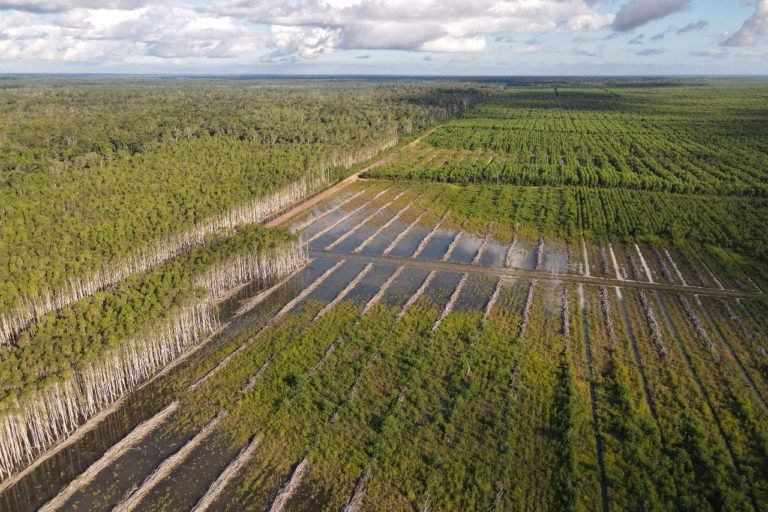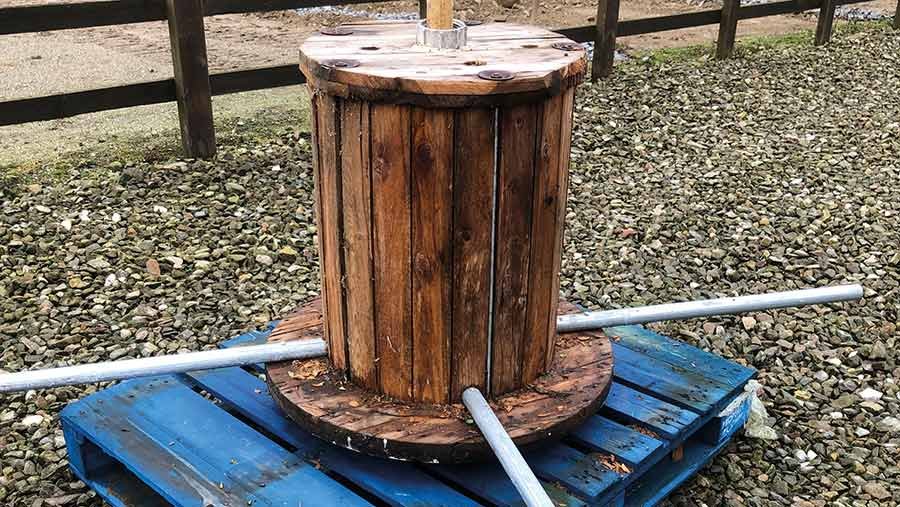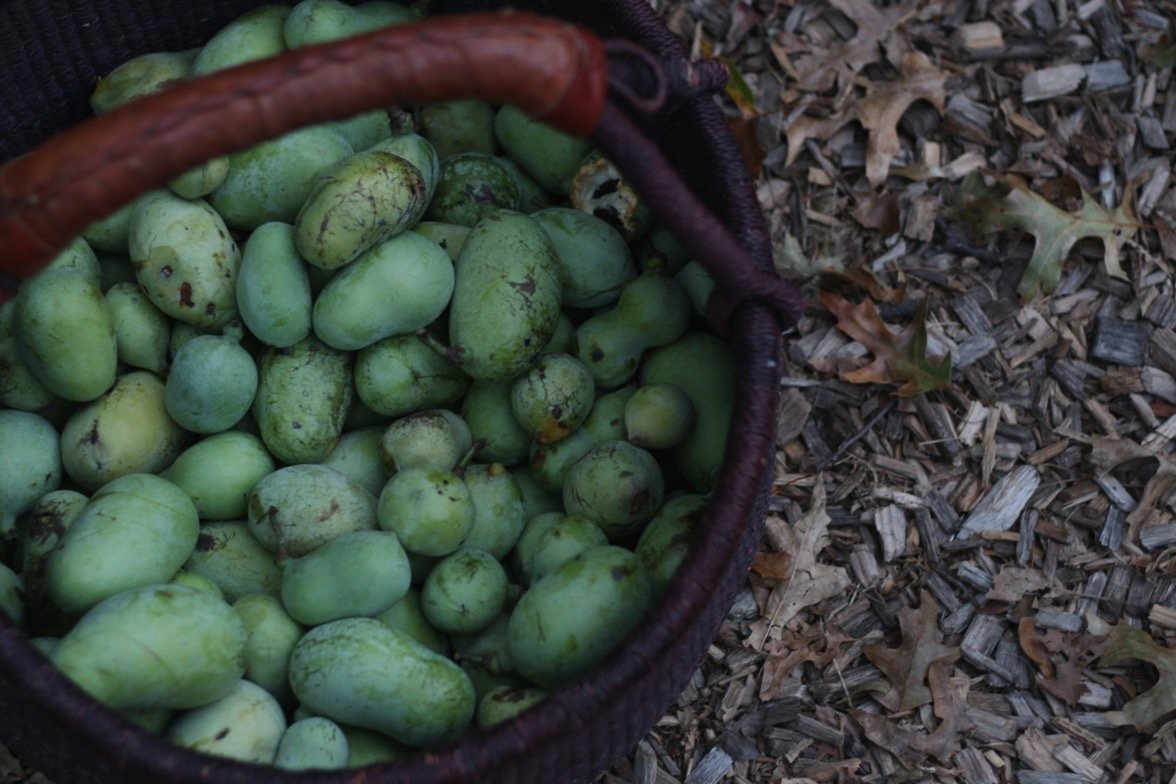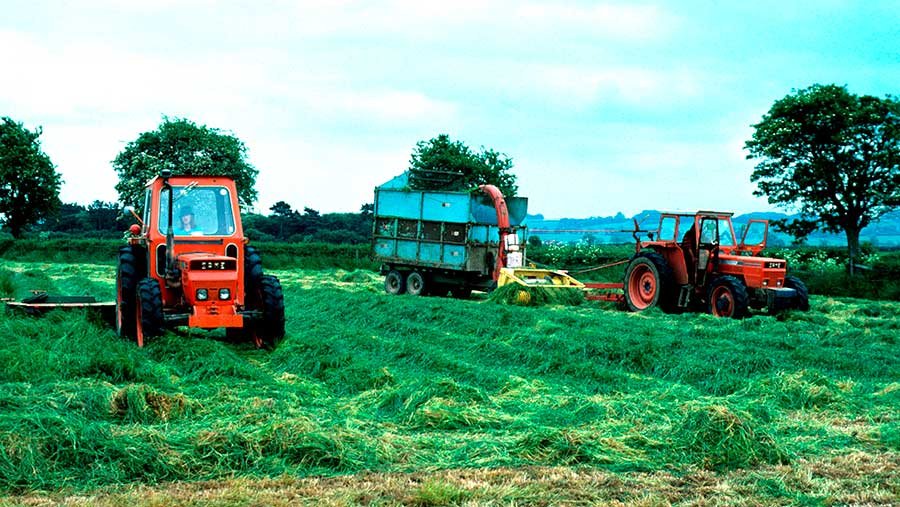- Indonesia’s Papua region lost total forest area the size of Manhattan last year, with much of the deforestation attributed to pulpwood and palm oil companies, according to a new report.
- Using satellite imagery and on-the-ground investigations, environmental NGO Pusaka recorded 5,810 hectares (14,357 acres) of deforestation in the region.
- One observer says this continued loss of forest highlights the disconnect between the Indonesian government’s rhetoric about tackling deforestation and what it actually allows to happen on the ground.
JAKARTA — Pulpwood and palm oil companies were among the biggest contributors to the loss of a Manhattan-size area of forest in Indonesia’s Papua region in 2021, a new report says.
Using satellite imagery from Planet Labs and its own investigations on the ground, Pusaka, an environmental nonprofit, reported that it had detected 5,810 hectares (14,357 acres) of deforestation in the region. Most of it, 2,286 hectares (5,649 acres), was detected inside logging concessions.
“We suspect this to be caused by infrastructure development as well as illegal logging and [timber] harvesting,” Natalia Yelwen, a Pusaka researcher, said during the recent launch of the report.
The concession holder with the largest deforested area according to Pusaka is PT Plasma Nutfah Marind Papua (PNMP), which grows pulpwood trees for making paper. A subsidiary of South Korean paper producer Moorim, PNMP was found to have cleared 1,789 hectares (4,421 acres) of forest in its concession in Merauke district, Papua province, according to Pusaka. Based on the latter’s field investigation and information from Indigenous communities living near the concession, PNMP allegedly cleared areas of lowland forest, swamp and peat forest.
PNMP camp manager Cha Hyun Soo denied this, saying there are no peat forests within the company’s concession. In an interview with Mongabay in Jakarta, Cha said the company is operating in accordance with its environmental impact assessment, locally known as Amdal, as well as its working plans.
“If there’s no Amdal, then there’s no way we could operate,” he said. “Based on the Amdal, there are protected forests etc. [that have to be conserved]. And based on this, we make a working plan.”
He added that PNMP has consulted with local Indigenous communities to identify ancestral forests and other places that are off-limits for clearing.
“Before clearing, [we] have to talk first with the communities and they put signs [in their areas],” Cha said.

Second on Pusaka’s list is PT Medco Papua Hijau Selaras (MPHS), an oil palm grower, with 1,038 hectares (2,565 acres) of forest loss detected inside its concession in Manokwari district, West Papua province, according to the report.
Pusaka said Indigenous inhabitants and company workers often complained about the company’s activities, which they deemed to be damaging the forests, polluting the water and air, and exacerbating the impact of floods.
Mongabay reached out for comment to Capitol Plantation, the palm oil arm of MPHS parent conglomerate Capitol Group, but did not receive a response.
Another palm oil company, PT Perkebunan Boven Digoel Sejahtera (PBDS), is third on Pusaka’s list of alleged deforesters. A member of the Digoel Agri conglomerate, it was linked by Pusaka to 434 hectares (1,072 acres) of deforestation in its concession in Boven Digoel district, Papua province.
The concession forms part of the Tanah Merah project, earmarked to become the world’s biggest oil palm plantation. The project lies in the heart of the world’s third-largest rainforest, after the Amazon and the Congo Basin.
Mongabay reached out for comment to Jackson Iqbal de Hesselle, a member of the prominent Rumangkang family that’s behind Digoel Agri, for a comment, but did not receive a response.
According to Pusaka, both MPHS and PBDS have made commitments not to deforest or clear peatland or exploit workers, known as an NDPE policy. But the forest clearing detected in both their concessions shows they’re violating their own commitments, Pusaka said.
Els Tieneke Rieke Katmo, an agriculture lecturer at the University of Papua, said the ongoing deforestation in the Papua region reveals a stark gap between the image that the Indonesian government projects abroad and what it allows to take place at home.
“On the one hand, it supports and signs various international conventions [on respecting human rights and halting deforestation], but on the other hand, it allows the destruction of the environment that serves as the main support of Indigenous peoples’ lives,” she said during the launch of the Pusaka report.
Pusaka’s Natalia called on stakeholders to ramp up their efforts to protect Papua’s remaining rainforests.
“To date, we are still seeing conflicts and environmental crime happening in Papua with new patterns,” she said. “Therefore, the state and businesses need to strengthen their efforts to respect and protect Indigenous peoples’ rights as well as protect the environment.”
Banner image: A road made by a palm oil company by clearing the forest in Jayapura Regency, Papua. Image by Asrida Elisabeth/Mongabay Indonesia.
FEEDBACK: Use this form to send a message to the author of this post. If you want to post a public comment, you can do that at the bottom of the page.















